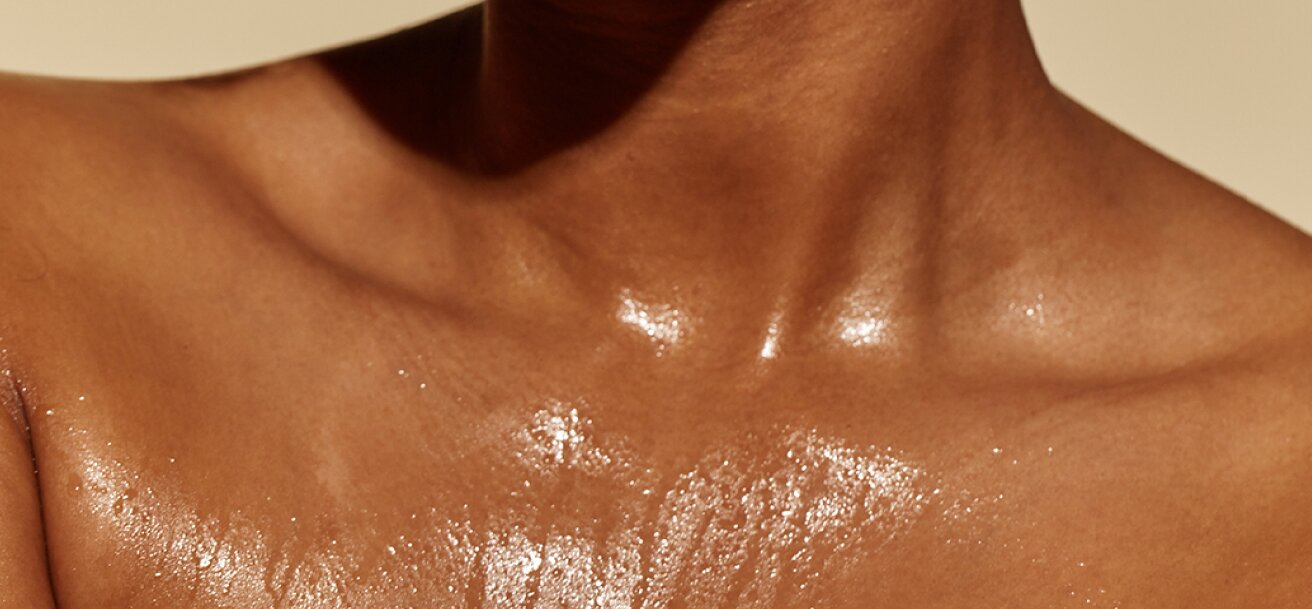
DOCTOR'S NOTE
All About the Skin Barrier
Why your skin barrier matters and how to strengthen and support it
As your first line of defense, the skin barrier is crucial to overall skin health. It helps protect your body from external stressors, like pollution, UV radiation and bacteria, and retain moisture, but a host of internal and external factors can compromise this protective layer leaving the skin irritated, dry and vulnerable to damage.
Read on for our Skin Laundry guide to how to protect and strengthen your skin barrier.
What is the Skin Barrier?
Technically speaking, the skin barrier refers to the stratum corneum, or the outermost layer of skin, which serves as the body’s first line of defense against pathogens and environmental stressors, such as pollution, extreme temperatures, and UV radiation.
Along with keeping harmful irritants, pollutants and bacteria out, the skin barrier also keeps moisture in, ensuring skin looks and feels supple, plump and, ultimately, hydrated.
The skin barrier contains its own three-part ecosystem:
- The Microbiome: The microbiome is the ecosystem of good bacteria that lives on the skin’s surface.
- The Acid Mantle: This is a thin film on the skin’s surface composed of lipids and sweat.
- The Lipid Layer: A combination of lipids, ceramides, and fatty acids.
Together, these work to keep the skin protected, hydrated and healthy.
How can the Skin Barrier become damaged?
The skin barrier can become weakened or damaged by a variety of internal and external factors.
Internal factors may include a diet that is low in essential fatty acids and antioxidants and chronic stress and poor sleep, which can weaken the skin barrier by causing inflammation and disrupting the skin’s natural repair processes. Our skin barrier also naturally becomes weaker with age, making it more susceptible to damage and dehydration.
External factors may include UV rays, pollution, free radicals, blue light, airborne allergens, weather and seasonal temperature. Then there are lifestyle factors like intense cleansers, over-exfoliation and products with harsh chemicals like fragrances and alcohols.
Signs of a damaged skin barrier may result in itchy, dry, flaky, red and inflamed skin. A dysfunctional skin barrier can also lead to an increase in skin concerns such as acne, hyperpigmentation and fine lines.

How To Choose a Sunscreen (and Why You Should Choose Ours)
The American Academy of Dermatology recommends the following when choosing a sunscreen:
1. Make sure the label says “broad spectrum.” The words broad spectrum mean that the sunscreen will protect your skin from both UVA and UVB rays.
2. Use an SPF 30 or higher, which can block about 97 percent of UVB rays.
How can I repair the Skin Barrier?
The skin barrier can be repaired and restored by following a good skincare routine.
• Eliminate any products with fragrances, alcohol and sulfates. Temporarily cut out actives such as Salicylic and Glycolic Acid and Retinoids, and cut back on exfoliation.
• Switch to a gentle oil-based or balm cleanser that effectively removes dirt and makeup without stripping the skin of its natural oils.
• Incorporate Ceramides into your routine.
• Incorporate humectants like Hyaluronic Acid which pull moisture into the skin into your routine.
• Incorporate occlusives like Squalane that lock in moisture into your routine.
• Incorporate ingredients like Niacinamide, Amino Acids and Antioxidants that support the skin barrier into your routine.
How do I maintain a healthy Skin Barrier?
A healthy pH is crucial to maintaining a healthy skin barrier. PH is a measure of acidity and healthy skin should maintain a mildly acidic pH between 4 and 6. To keep the skin’s pH within that healthy range, continue to avoid harsh soaps with sulfates and over exfoliation–both chemical and physical.

Our Hydrating Gentle Cleanser contains 7 types of Amino Acids to support the skin barrier and protect the skin from free radical and UV damage; Vitamin B5 to help skin retain moisture and provide anti-inflammatory properties; Sodium PCA, a natural humectant; and Watermelon Extract, a powerful antioxidant.
Stick to a regular moisturizing routine that combines humectants and emollients to bolster that lipid layer.
After cleansing, while the skin is still damp, apply our Hyaluronic Acid Serum which contains 0.5% Hyaluronic Acid to draw hydration into the skin and 0.5% Niacinamide (Vitamin B3) to support the skin barrier.
Follow with our Vitamin B5 Antioxidant Moisturizer formulated with Pro-Vitamin B5 (Panthenol) to help skin retain moisture and keep it soft, smooth, and healthy; Glycerin to hydrate the outer layer of the skin and improve skin barrier function; and Shea Butter, which is rich in fatty acids, providing moisture and anti-inflammatory properties.
Always use sunscreen daily to protect your skin from UV radiation, which can damage the skin barrier. Look for broad-spectrum sunscreens that provide protection against both UVA and UVB rays.
Our Sun Defense Mineral SPF 30 Sunscreen provides physical protection in the form of Zinc Oxide, while moisturizing Hemisqualane allows for easy application, leaving little to no white residue or a sticky feel on the skin.
Additional Reading
Your Shopping Bag
Your shopping bag is empty











